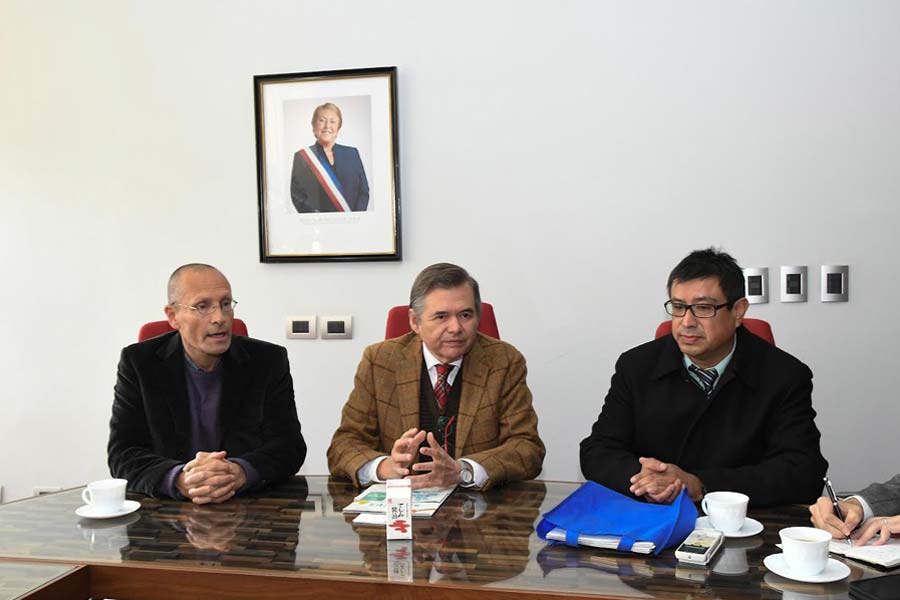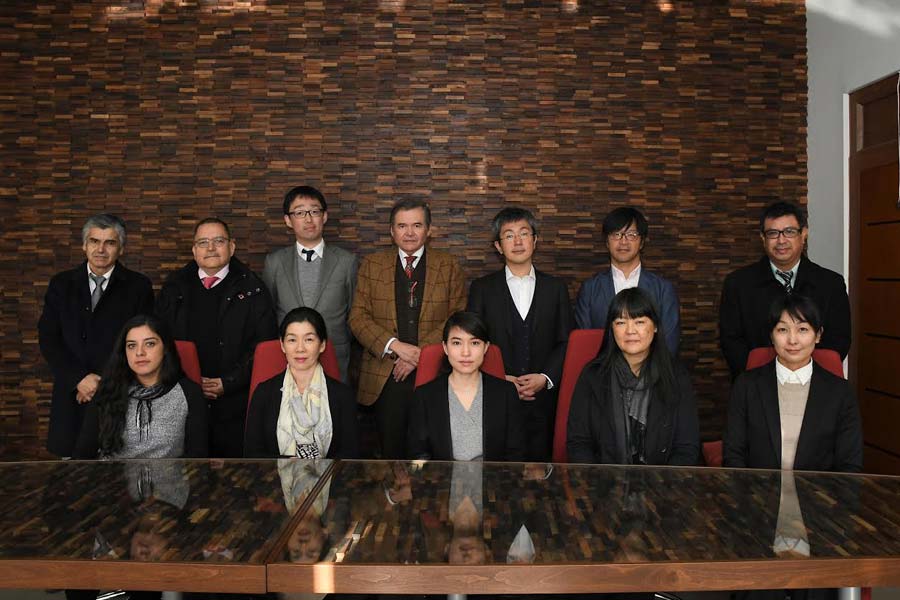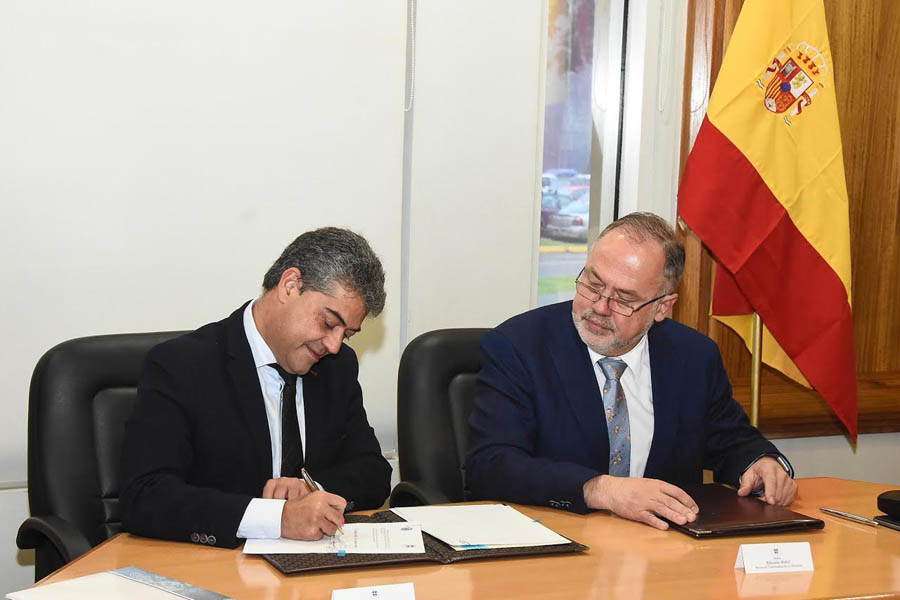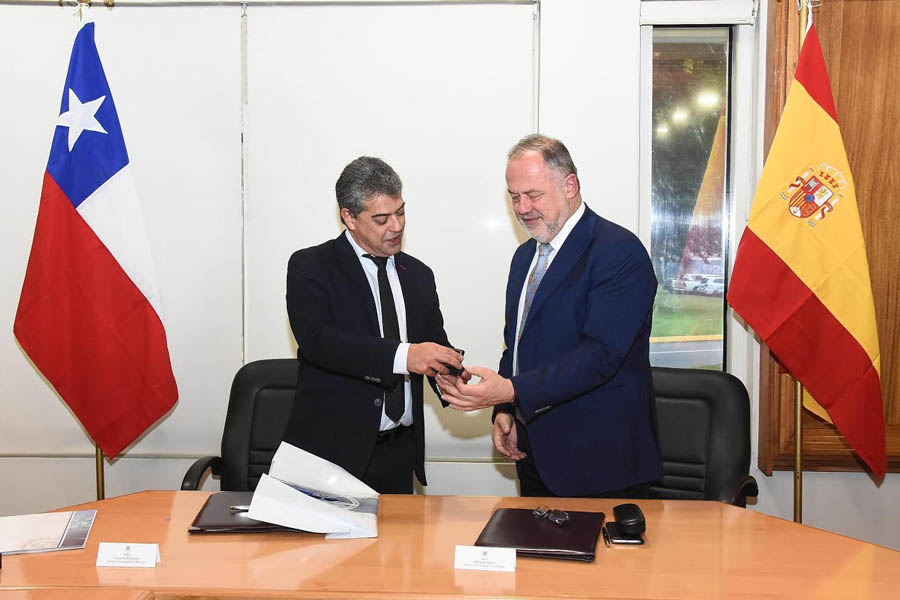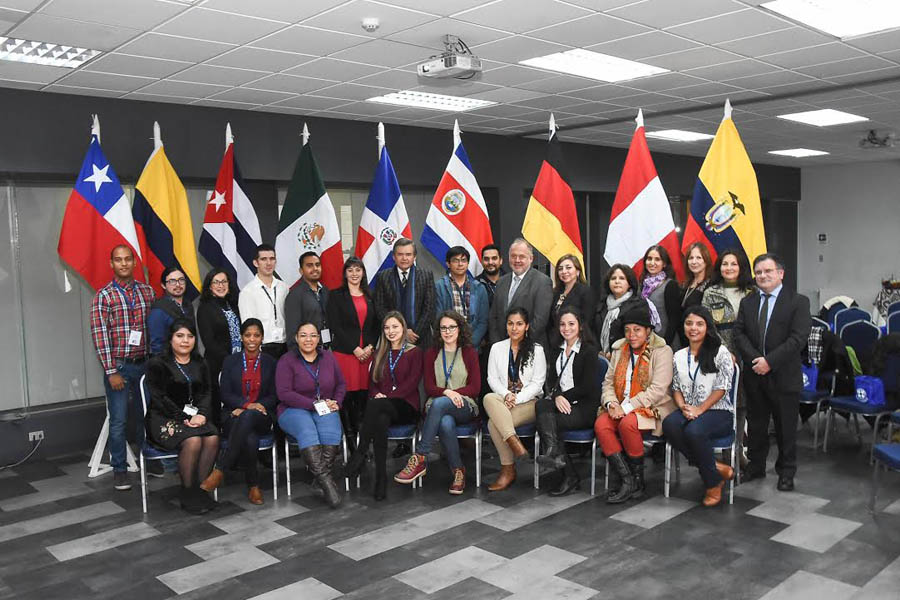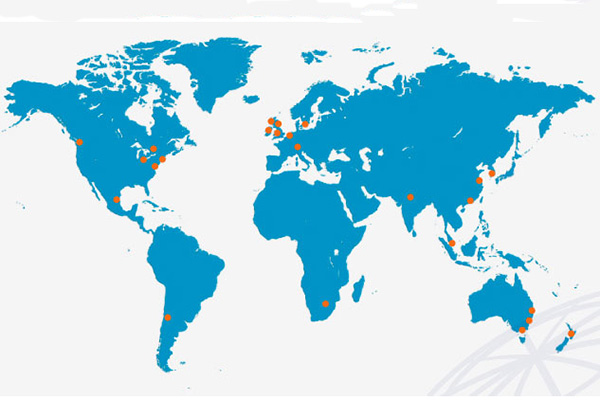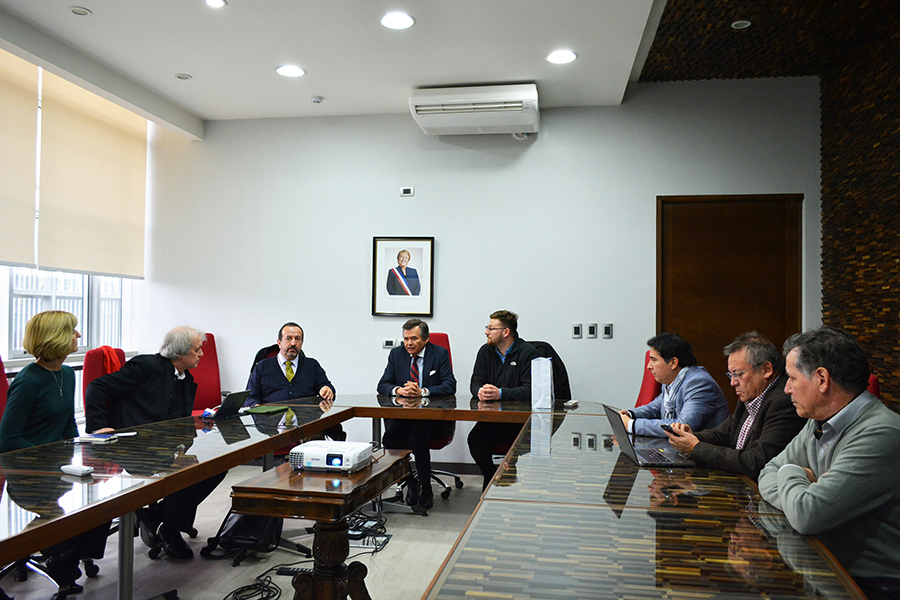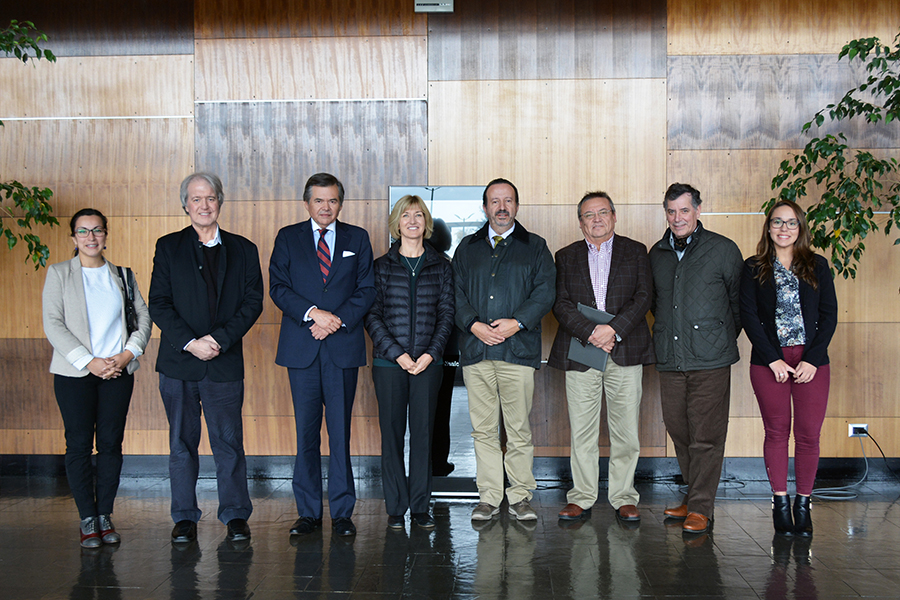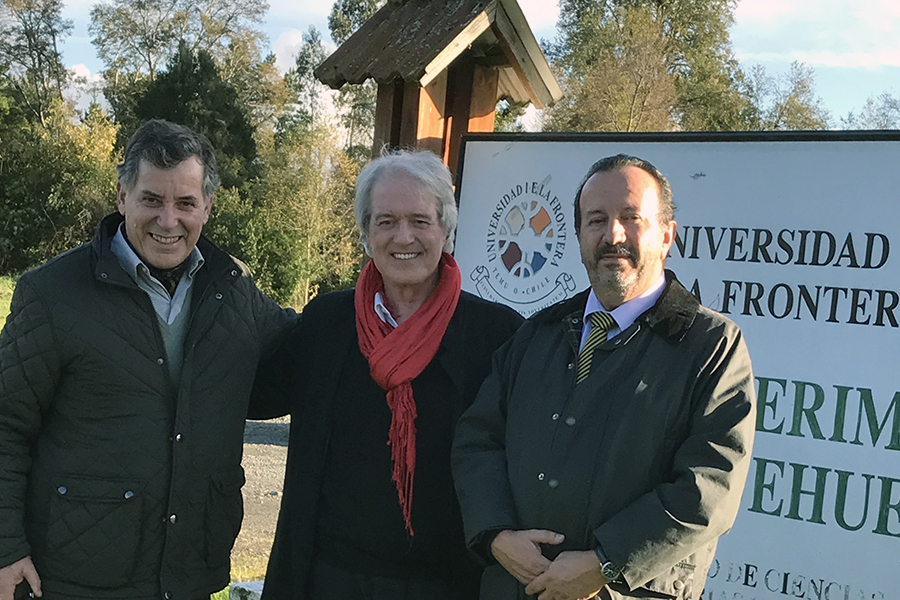|
Thanks to funds of the Japanese government, through the International Cooperation Agency (JICA) and the Agency of Science and Technology (JST), a three billion Chilean pesos worth project was awarded to the Universidad de La Frontera, which will have a scientific, economic and social impact. The idea is to avoid red tide caused economic losses in the salmon industry by using a detection kit of easy use for the industry. |
Monitoring, predicting and detecting red tide outbreaks in southern Chile, especially in areas of salmon farming for export, is the main objective of a group of Chilean scientists who have just joined a research team at the Kyoto University, the University of Okayama and the Japanese Research Institute of Fisheries Science. Chile is the world´s second largest salmon exporting country and Japan is the second biggest importer, since their diet is based on the consumption of this animal, in large part. But the latest outbreak of red tide meant a loss of more than 800 million dollars for the Chilean industry, affecting large part of the production in the Los Lagos Region.

Written by: Lorena Espinoza Arévalo |
|
The present extended agreement will allow to interact in the fields of agricultural and forestry science, legal science, humanities, social science and engineering. |
The Department of Psychology of the Universidad de La Frontera and its peers of the Universidad de Almeria (Spain) are celebrating their valuable relationship. The highest authorities of both educational establishments decided to extend the collaborative ties through a new international cooperation agreement. This important partnership was established by Eduardo Hebel, rector´s representative of the Universidad de La Frontera, and Carmelo Rodríguez, rector of the Universidad de Almería, in presence of the deans of the six UFRO faculties, which participated in the ceremony held in the Vice-Rectorate´s board room. This new agreement is very important, since both establishments of higher education assume their willingness and commitment to do exchanges at the student and academic level, and to enhance the interest in exploring new links of mutual benefit in the areas of postgraduate programs and research, starting in May 2017. In this regard, the rector of the Universidad de Almeria, Carmelo Rodríguez, pointed out that one of the strategies of this educational establishment is internationalization. "This encourages us to comply with indicators of student mobility, because we believe that the training of students is not only based on knowledge, but also on their comprehensive development and in the case of PhD students and teachers (academics), networks and collaborative work to make transfer." In this context, the authority of the Spanish university was optimistic about what this agreement will allow to concrete now and in the future and the rector´s representative of the UFRO, Eduardo Hebel, reaffirmed the importance of this cooperation, which contributes to a common process and goal. "It is not any kind of internationalization that we are looking for. We are focused on those establishments of higher education in the world, where different fields and disciplines are covered", said Dr. Hebel, and emphasized that this agreement will allow interactions in the fields of agricultural and forestry science, legal science, humanities, social science and engineering. According to the academic authority, this agreement fulfills the expectations of what is being sought in the context of international agreements, and the most important thing is to be cross-disciplinary in the aspect of being able to offer the possibility of doing internships for undergraduate students, and to have networks and collaborative partnerships at the postgraduate and research level. The Director of the International Cooperation Office, Dr. Pamela Leal, said that this year at the annual meeting of the Inter-American Association of Universities, we expressed interest in the scope of this agreement, which specifically contemplates at least two places in each area for student exchange and support for joint research and mobility for postgraduate students and academics.
 Written by: Pamela Carrasco Salas Written by: Pamela Carrasco SalasDirection of Communications |
|
The new generation of foreign postgraduate students opted for the Universidad de La Frontera because of being a space of academic strength of a high level. |
In each of the stories of the postgraduate students, it is possible to appreciate how the Universidad de La Frontera has achieved to define its name outside the country. The advance in strengthening internationalization is a task of the present and future, and several academic initiatives and activities support this interest. This is the case of the "UFRO 2017 Postgraduate Foreign Students Welcome", organized by the International Cooperation’s Office, dependent of the Vice-Rectorate of Academic Affairs, in conjunction with the Vice-Rectorate of Research and Postgraduate Programs, which received the 19 international students who are integrated into the UFRO and begin their stay. The Vice Rector of Research and Postgraduate Programs, Dr. Eduardo Hebel, expressed the importance of this group of young people coming here, as the result of hard work, which shows the desire of the Universidad de La Frontera to expand beyond the borders. "We are a complex university that improves itself, and one of our projections is to consolidate the process of internationalization, a matter in which you are relevant actors." The Director of the International Cooperation´s Office, Dr. Pamela Leal, explained that the UFRO achieved remarkable advances regarding the arrival of international students. "From the year 2010 to the present, we have achieved an increase of 25% in the number of students that are integrated into the postgraduate programs. However, we now aim to strengthen the cooperation´s and attract students from the United States, Canada and Europe." This is possible, because the Universidad de La Frontera is very attractive and important for studies in Latin America. The countries of origin include: Cuba, the Dominican Republic, Costa Rica, Mexico, Colombia, Brazil, Peru and Germany.
 Written by: Pamela Carrasco Written by: Pamela Carrasco Direction of Communications |
|
As part of an invitation from the Faculty of Agricultural and Forestry Science, representatives of Western Australia came to the UFRO for a series of activities. |
The University of Werstern Australia is a university with tradition and wide prestige and is valued world-wide. Its representatives, the vice-rector and also dean of the Faculty of Sciences, Tony O'Donnell, and the director of International Relations, Annabele Turner, realized a visit to the Universidad de La Frontera, where they could experience the academic and scientific work that is promoted here. As part of an invitation from the Faculty of Agricultural and Forestry Science of the UFRO, the representatives of Western Australia carried out a series of activities, including a meeting with the authorities of the UFRO, led by the Rector Sergio Bravo, as well as a tour around the University facilities and a visit to the Maquehue Experimental Field. On this occasion, vice-rector O'Donnell talked with the authorities of the UFRO about the credentials of this prestigious university, especially the work of the Faculty of Sciences, which is among the 24 best in the world in the category of Life and Agricultural Sciences (according to the Academic and Ranking of World Universities 2016) and whose academic body includes the scientist Barry Marshall, Nobel Prize in Medicine and Physiology 2005 for his work on the bacterium Helicobacter pylori. The Rector Sergio Bravo explained to the Australian representatives the Chilean higher education standards and the relevant aspects of the UFRO as a public, state and regional university, reviewing the different areas of the academic and scientific work, emphasizing the institutional focus on internationalization through the search of strategic partnerships with foreign educational establishments. Vice-Rector O'Donnell explained that they are also working on internationalization at Western Australia, and that this is why they have been promoting collaborations, for example with Asian, and now Latin American institutions. "The reason why we are in Chile is that we are looking for long-term relationships, which will allow us to do student and professor exchange, and joint research", he said. In that sense, he added that as an Australian university they want to strengthen internationalization to also enable their teachers to work in different environments, considering that the research they carry out and the programs they have are aimed at tackling global issues.  Written By: Jassna Sepúlveda Beltrán Written By: Jassna Sepúlveda BeltránThis email address is being protected from spambots. You need JavaScript enabled to view it. |






